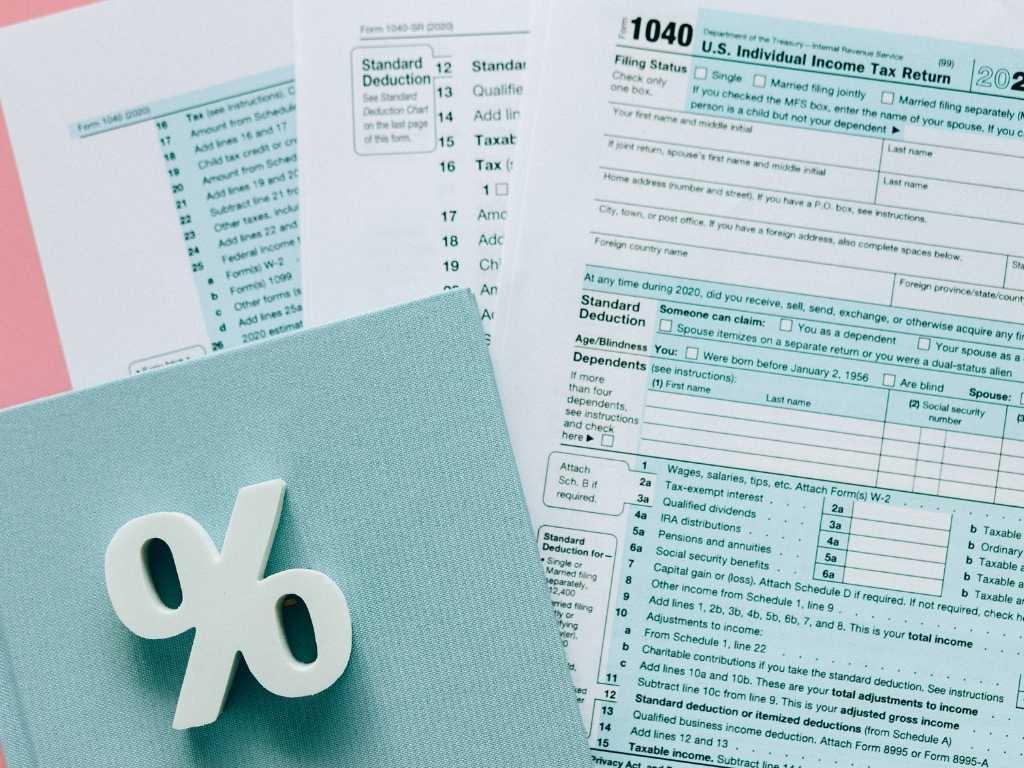Do you love keeping things organized like your personal budget, a good bookshelf, or even your daily to-do list? If numbers make sense to you, and you enjoy bringing order to chaos, why not turn that skill into a business? If you learn how to start a bookkeeping business, you can do what you love while helping others stay on top of their finances. Plus, it’s flexible, low-cost to start, and always in demand.
Whether you want to work from home, set your own hours, or build something bigger, bookkeeping can be the perfect way to turn your passion into profit. But where do you start? That’s exactly what this guide is here for. We’ll walk you through every step so you can build a business that fits your lifestyle. Let’s dive in!

What Is A Bookkeeping Business?
Before we get into how to start a bookkeeping business, let’s talk about what is a bookkeeping business. A bookkeeping business helps companies manage their finances by keeping track of income, expenses, invoices, and reports. It’s all about keeping things in order, so business owners don’t have to worry about financial chaos.
Now, you might be wondering: Is bookkeeping the same as accounting? Not exactly. Bookkeepers focus on recording and organizing financial data, while accountants analyze that data and provide financial advice. So bookkeepers are the librarians of the financial world because they keep everything in its right place, so businesses can function smoothly.
And guess what? Every business needs bookkeeping, which means if you learn how to start a bookkeeping business, your services will always be in demand.
Why Learn How To Start A Bookkeeping Business?
If you’re thinking about how to start a bookkeeping business, you’re probably wondering: Is this the right move for me? Well, let’s talk about why bookkeeping is such a fantastic business to start.
Low Startup Costs (No Big Investments Needed!)
One of the biggest reasons people hesitate to start a business is the cost. But here’s the good news. Bookkeeping is one of the most affordable businesses to start. You don’t need a fancy office, expensive equipment, or a warehouse full of products, so if you were making an excuse for no money, you don’t have that excuse anymore. All you really need is:
- A laptop (which you probably already have)
- Reliable internet (a must for any online business)
- Bookkeeping software (many have free trials or low-cost plans)
No massive investments, no huge risks. It’s just you, your skills, and a simple setup.
Work From Anywhere (Yes, Even in Pajamas!)
Do you love the idea of rolling out of bed, grabbing a coffee, and starting your workday without ever leaving home? That’s exactly what a bookkeeping business offers. Since bookkeeping is done mostly online, you have the freedom to work from anywhere. It can be your home office, a cozy café, or even a tropical beach (as long as there’s Wi-Fi).
Want to take a mid-week trip? No problem. Prefer working at night instead of mornings? Totally up to you. This business gives you control over your schedule and location. What’s there not to love about this business?

Steady, Recurring Income
Let’s face it; one of the scariest parts of running a business is inconsistent income. Some businesses rely on one-time sales, but bookkeeping is different. Since every business needs bookkeeping every single month, you’ll have clients on long-term contracts that bring in steady, predictable income. This means:
- No more worrying about where your next paycheck is coming from
- More financial stability compared to many other businesses
- The ability to plan ahead and grow with confidence
If you love the idea of security and flexibility, bookkeeping gives you the best of both worlds.
Be Your Own Boss
Ever had a boss who micromanaged everything? Or dealt with office politics that made work miserable? Running your own bookkeeping business means you call the shots. You decide who you want to work with, you set your own rates, and you create a schedule that fits your life
There’s no one telling you what to do and you’re in complete control. And the best part? You’re building something for yourself, not for someone else’s company.
High Demand
Bookkeeping isn’t some trendy job that will disappear in a few years. It’s an essential service that every business needs. From small startups to big corporations, every business must track its finances. Most business owners either don’t have the time or don’t know how to do it themselves. That’s where you come in. Even better? Many businesses are switching to remote bookkeepers, meaning there’s an even bigger demand for virtual bookkeeping services.
Skills And Qualifications Needed To Start A Bookkeeping Business
One of the best things about how to start a bookkeeping business is that you don’t need a finance degree or years of formal education. But you do need the right skills to do the job well and attract clients. If you’re wondering whether you have what it takes, let’s break down the must-have skills that will set you up for success.
Attention To Detail
Bookkeeping is all about accuracy. Even a small mistake like misplacing a decimal or mixing up numbers can create major financial headaches for a business. If you’re someone who notices when a restaurant bill is a few cents off or when something just doesn’t add up, you’ve already got a key skill for bookkeeping. The ability to spot errors and double-check your work is what will make you a trusted bookkeeper.
Organization Skills
Bookkeeping isn’t just about crunching numbers but it’s also about keeping everything in order. You’ll be handling multiple clients, invoices, receipts, financial reports, and deadlines. If you’re naturally organized and love checklists, schedules, and color-coded folders, you’ll have an easier time managing your workload. Being well-organized not only makes your work more efficient but also helps you impress clients who rely on you to keep their financial records in check.
Bookkeeping Software Know-How
Gone are the days of doing bookkeeping with a pen and paper. Bookkeeping software makes everything faster, easier, and more accurate. Some of the best AI tools for career building as a bookkeeper include QuickBooks, Xero, and Wave. Getting comfortable with these platforms will make your job a whole lot easier. Plus, clients often use these tools, so knowing them in advance makes you more marketable.

Creating A Business Plan For Your Bookkeeping Business
A solid business plan helps you stay focused, set goals, and make smart decisions from day one. Here’s how to plan how to start a bookkeeping business:
Who Do You Want to Work With?
Not all bookkeeping clients are the same. Some are small business owners who need help organizing their finances, while others are large corporations looking for a dedicated bookkeeper. Do you want to work with freelancers and solopreneurs who need simple bookkeeping? Are small businesses your target because they require ongoing financial management?
Would you rather specialize in a specific industry like e-commerce, healthcare, or real estate? Narrowing down your ideal client makes it easier to market yourself and tailor your services to meet their needs.
How Will You Charge?
Pricing is tricky, but having a clear payment structure from the start will save you headaches later. Here are three common pricing models for bookkeepers:
- Hourly Rate: You charge clients for the time you spend working on their books. This is good for those just starting out.
- Fixed Monthly Packages: Clients pay a set amount each month for ongoing bookkeeping services. This provides steady, predictable income.
- Per Project Pricing: Best for one-time services like setting up bookkeeping systems or cleaning up messy books.
Pro Tip: Research other bookkeepers in your niche to see what they charge. This helps you set competitive rates while ensuring your time and skills are valued.

What Services Will You Offer?
Before you learn how to start a bookkeeping business, know that it covers a wide range of tasks, so think about which services you want to offer. Will you handle:
- Basic bookkeeping (tracking income/expenses, reconciling bank statements)?
- Payroll management (paying employees, calculating taxes)?
- Financial reporting (creating profit and loss statements, balance sheets)?
- Tax preparation (helping businesses get their books ready for tax season)?
If you specialize in a specific service or industry, it can help you stand out and charge higher rates.
How To Register And Legalize Your Bookkeeping Business
Starting a bookkeeping business isn’t just about crunching numbers—you also need to make sure everything is legal and above board. Skipping this step could lead to fines, tax troubles, or even having your business shut down. But don’t worry, registering your business isn’t as complicated as it sounds. Here’s what you need to do.
Choose A Business Structure
Before you start taking on clients, you need to decide how you want to structure your bookkeeping business. The right choice depends on how much personal liability protection you want and how you’d like to handle your taxes. Here are the main options:
Sole Proprietorship:
The simplest option. You and your business are legally the same entity, which means you’re personally responsible for any debts or legal issues. This setup works if you’re just testing the waters, but it doesn’t offer much protection.
Limited Liability Company (LLC):
A popular choice for bookkeepers because it separates your personal assets from your business. If anything goes wrong, your personal finances are protected. Plus, LLCs offer tax flexibility, allowing you to choose how you’re taxed.
Corporation (S-Corp or C-Corp):
A more complex structure is typically used for larger businesses. If you plan to expand or hire employees in the future, this might be a good option, but it comes with more paperwork and regulations.
For most solo bookkeepers, an LLC is the best balance between simplicity and legal protection. However, it’s always a good idea to consult with a business attorney or accountant to make sure you’re making the right choice.

Get An EIN (Employer Identification Number)
Even if you’re the only person in your business, you’ll need an Employer Identification Number (EIN). Think of it as a Social Security number for your business. It’s required for tax purposes, and if you ever decide to hire employees, you’ll already have it in place. Getting an EIN is free and can be done quickly through the IRS website.
Register For Taxes And Permits
Every location has different tax requirements, so it’s important to check with your local government to see what’s needed. Depending on your location, you may need:
- A business license to legally operate in your city or state.
- A sales tax permit if you offer services that are taxable in your area.
- A home occupation permit if you plan to run your business from home.
It’s also a good idea to open a business bank account to keep your personal and business finances separate. This makes tax season much easier and helps your business look more professional. Now that your business is officially legal, it’s time to set it up for success!
How To Find Clients For Your Bookkeeping Business
You’ve set up your business, picked your software, and created your contracts. Now, you need clients! Finding your first few clients can be hard, but with the right steps, you’ll start attracting business in no time.
Start With People You Know
Your first clients might be closer than you think. Let your friends, family, and former coworkers know that you’ve started a bookkeeping business. They might need your help or know someone who does. Even a simple social media post announcing your services can lead to referrals.
Join Business Networking Groups
Small business owners always need bookkeeping help. The best way to meet them is by joining networking groups, both online and in person. Look for local business meetups, chamber of commerce events, or industry-specific Facebook groups. Introduce yourself, share helpful advice, and let people know what you do. Over time, these connections can turn into clients.
Use Social Media To Attract Clients
Social media is a great way to find clients without spending money on ads. Platforms like LinkedIn, Instagram, and Facebook allow you to share tips, success stories, and insights that show your expertise. You don’t have to post daily, but sharing valuable content regularly can help you get noticed.
For example, you could post:
- “3 Simple Ways to Organize Your Business Finances”
- “Why Every Freelancer Should Track Their Expenses (And How to Start)”
- “The Most Common Bookkeeping Mistakes Small Business Owners Make”
Posts like these show business owners that they need bookkeeping help and making them more likely to reach out to you.

Create A Simple Website
A website makes your business look professional. It doesn’t have to be complicated. A single page that explains your services, shares your contact info, and answers common questions is enough. If possible, add testimonials from happy clients to build trust.
Offer A Free Resource
People love free advice, and offering a helpful resource can attract potential clients. You could create a short checklist like “5 Bookkeeping Tips Every Small Business Owner Should Know.” Share it on your website or social media. When people download it, they’ll see you as an expert. And when they need bookkeeping help, you’ll be the first person they think of.
How To Start A Bookkeeping Business With Good Branding?
First impressions matter! If you want to stand out in a competitive industry, you need a professional image. That starts with branding. Your business name, logo, and overall presentation should reflect professionalism and trustworthiness. Many potential clients will judge your credibility based on how polished your business looks.
Create A Professional Logo
A well-designed logo instantly makes your bookkeeping business look established and credible. But don’t worry, you don’t need to hire a designer or spend hours trying to make one yourself. With Arvin AI’s Logo Maker, you can create a sleek, professional logo in minutes. Just enter your business name, pick a style, and let AI handle the design work for you. A strong logo will help build trust and make your brand more recognizable.
Once you’ve got your logo, use it everywhere like on your website, invoices, business cards, and social media. Consistent branding makes a lasting impression and helps you attract the right clients.
FAQS About How To Start A Bookkeeping Business
Here are a few of the most frequently asked questions about how to start a bookkeeping business:
Is a bookkeeping business profitable?
Yes, a bookkeeping business can be highly profitable! Since businesses always need help managing their finances, bookkeepers enjoy steady demand. Profitability depends on your experience, pricing strategy, and number of clients. Many solo bookkeepers earn anywhere from $40,000 to $80,000 per year, while those who scale their business and hire a team can easily make six figures or more. Plus, with minimal overhead costs, most of what you earn goes straight to your pocket!
How much does it cost to start a bookkeeping business?
One of the best things about starting a bookkeeping business is that it doesn’t require a huge investment. You can get started for as little as $500 to $2,000, depending on the tools and certifications you choose. Here’s a breakdown of potential costs:
- Bookkeeping software (QuickBooks, Xero, or Wave): $0 to $50/month
- Business registration & insurance: $100 to $500
- Training And Certification (optional but beneficial): $200 to $1,000
- Website And Marketing: $100 to $500
If you already have a laptop and internet connection, you’re practically set to go!
Can I make 100k as a bookkeeper?
Absolutely! Many bookkeepers reach six figures by offering premium services, working with multiple clients, or specializing in high-demand industries. One way to boost your income is by specializing in high-demand industries like real estate or e-commerce, which allows you to charge higher rates. Offering additional services such as payroll management, financial consulting, or tax preparation assistance can also increase your earnings.
Can I start a bookkeeping business without experience?
Yes, but you’ll need to invest time in learning bookkeeping fundamentals. Free resources like Bookkeeping Basics by AIPB or courses from platforms like Coursera, Udemy, and LinkedIn Learning can help you build the skills you need.
How much should I charge for my bookkeeping services?
Pricing depends on factors like experience, location, and the complexity of services offered. On average, bookkeepers charge:
- $25–$50 per hour for beginners.
- $50–$100 per hour for experienced bookkeepers with specialized knowledge.
- Flat monthly rates range from $200 to $1,000+ depending on the workload.
It’s always a good idea to research competitors in your area and adjust your pricing accordingly.
Do I need a business bank account for my bookkeeping business?
Yes! Keeping your personal and business finances separate is crucial. A business bank account makes it easier to track income and expenses, simplifies tax filing, and adds a layer of professionalism when dealing with clients. Many banks offer small business accounts with low fees, so shop around for the best option.
Take Home Message
You already have the skills, the passion, and now, the know-how. The only thing left? Taking that first real step. How to start a bookkeeping business isn’t just about getting clients or setting up systems. It’s about building something that gives you freedom, flexibility, and a steady income doing what you enjoy.
And every great business needs a strong identity. A name people remember. A brand that stands out. That’s where Arvin AI’s Logo Maker comes in. In just a few clicks, you can create a sleek, professional logo that gives your business the credibility it deserves.
So, what’s stopping you? The best time to start was yesterday. The next best time? Right now. Let’s turn your bookkeeping dream into a thriving reality, one client, one balance sheet, and one smart decision at a time!


